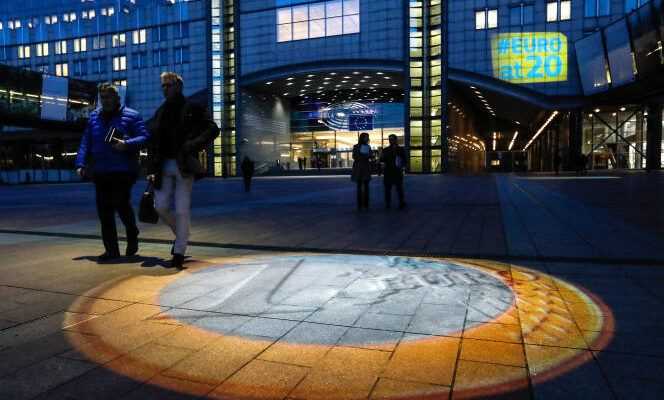The transition had gone so well. After years of dual pricing, gradual transfers of check books and bank accounts, the 1er January 2002, twenty years ago, was the great symbolic leap: the switch to euro coins and banknotes. 1 euro = 6.55957 francs. 100 francs for around 15 euros. The conversion was known to all. Three weeks later, “Almost all French people made their purchases in euros”, noted the Banque de France in September 2002.
The single European currency had been officially launched three years earlier, for financial markets or state accounts, but the switch to cash has brought European construction into everyday life and wallets. At the time, twelve countries had embarked on the adventure. Today there are nineteen (Germany, Austria, Belgium, Cyprus, Spain, Estonia, Finland, France, Greece, Ireland, Italy, Latvia, Lithuania, Luxembourg, Malta, Netherlands, Portugal, Slovakia and Slovenia). Two more are expected to join the club soon: Croatia in 2023 and Bulgaria in 2024.
As often, it is foreigners who talk about it the best. Rebecca Christie, American, now based in Belgium for the Bruegel think tank, recalls that it is one of the two great concrete symbols of the European Union (EU): “Thanks to the Schengen zone, you cross countries without stopping at borders and thanks to the euro, you don’t change your money. “
In July 2015, the euro came close to implosion
Six years ago, however, in July 2015, the euro came close to implosion. In Greece, withdrawals from cash machines were limited to 60 euros and transfers of capital abroad were severely restricted. The Greeks had voted by a large majority (61%, against 39%) against the conditions of the new bailout of the EU and the International Monetary Fund (IMF). A “Grexit” seemed inevitable.
In the end, this did not happen, but this crisis, which started five years earlier, led to very violent austerity cures in Greece, Spain, Portugal and Italy, fueling the resentment of the populations.
The twentieth anniversary therefore has a bittersweet taste. On the one hand, the euro has established itself as an essential international currency and is widely supported by the European population. On the other hand, despite immense progress in recent years, its foundations remain precarious. “Today, the risk of a fragmentation of the euro or of a country that would exit is very low, even zero, but we cannot be satisfied with that, believes Shahin Vallée, former adviser to the President of the European Council, Herman Van Rompuy, between 2012 and 2014, now a researcher at the German Council on Foreign Relations, a German think tank. The question is whether the single currency will survive, or whether it is the basis for broad prosperity. “
You have 61.64% of this article to read. The rest is for subscribers only.
